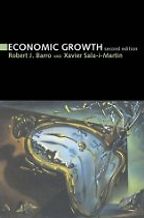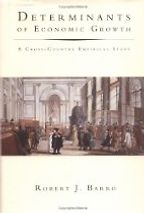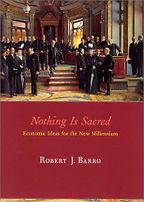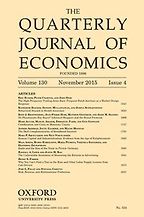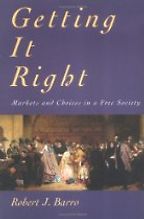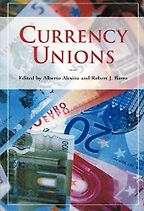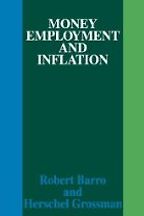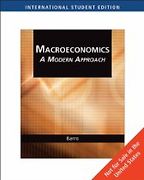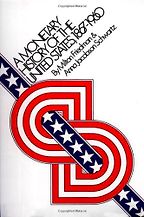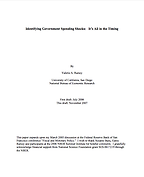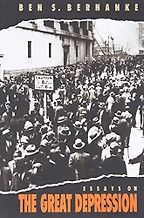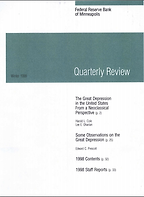
Books by Robert Barro
Robert Barro is a professor of economics at Harvard.
Macroeconomic Effects from Government Purchases and Taxes
by Robert Barro
One of the things I’ve been trying to do in my research is to calculate the effect, particularly on Gross Domestic Product, of government expenditure programs. The New Deal is part of my research, and it’s bigger than the other non-defense expenditure in terms of stimulus, but it’s not enough to really sort it out. So I don’t think you can reliably say what the effect is. The wartime effect you can estimate pretty precisely and the multiplier is clearly less than 1, even in World War II – in the order of 0.6, 0.7 something like that.
Interviews with Robert Barro
-

1
A Monetary History of the United States, 1867-1960
by Anna Schwartz & Milton Friedman -

2
Macroeconomic Effects from Government Purchases and Taxes
by Robert Barro -

3
Identifying Government Spending Shocks
by Valerie Ramey -

4
Essays on the Great Depression
by Ben Bernanke -

5
The Great Depression in the United States from a Neoclassical Perspective
by Harold Cole and Lee Ohanian
The Lessons of the Great Depression, recommended by Robert Barro
The Lessons of the Great Depression, recommended by Robert Barro
Harvard macroeconomist Robert Barro takes issue with some common assumptions about the Great Depression, and how America got out of it.
Interviews where books by Robert Barro were recommended
-

1
A Monetary History of the United States, 1867-1960
by Anna Schwartz & Milton Friedman -

2
Macroeconomic Effects from Government Purchases and Taxes
by Robert Barro -

3
Identifying Government Spending Shocks
by Valerie Ramey -

4
Essays on the Great Depression
by Ben Bernanke -

5
The Great Depression in the United States from a Neoclassical Perspective
by Harold Cole and Lee Ohanian
The Lessons of the Great Depression, recommended by Robert Barro
The Lessons of the Great Depression, recommended by Robert Barro
Harvard macroeconomist Robert Barro takes issue with some common assumptions about the Great Depression, and how America got out of it.
